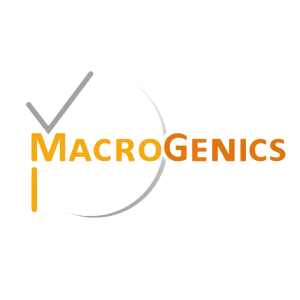MacroGenics Announces Flotetuzumab and Tebotelimab Presentations at the ASH Annual Meeting 2020
Rhea-AI Summary
MacroGenics, Inc. (NASDAQ: MGNX) announces the presentation of six clinical and preclinical abstracts on acute myeloid leukemia (AML) and flotetuzumab at the 62nd American Society of Hematology Annual Meeting, occurring December 5-8, 2020. Key presentations include data on flotetuzumab as salvage therapy and its potential impact on AML. The company also highlights tebotelimab data in diffuse large B-cell lymphoma. These findings suggest growing interest in flotetuzumab as a treatment option for AML, supported by its orphan drug designation from the FDA.
Positive
- Presentation of six abstracts at the ASH Annual Meeting indicates strong focus on AML research.
- Flotetuzumab demonstrates potential as salvage therapy for relapsed AML patients.
- FDA granted orphan drug designation to flotetuzumab, signaling regulatory support.
Negative
- None.
News Market Reaction 1 Alert
On the day this news was published, MGNX gained 5.25%, reflecting a notable positive market reaction.
Data tracked by StockTitan Argus on the day of publication.
ROCKVILLE, MD, Nov. 04, 2020 (GLOBE NEWSWIRE) -- MacroGenics, Inc. (NASDAQ: MGNX), a clinical-stage biopharmaceutical company focused on discovering and developing innovative monoclonal antibody-based therapeutics for the treatment of cancer, today announced six clinical and preclinical abstracts related to acute myeloid leukemia (AML) and flotetuzumab, an investigational bispecific CD123 × CD3 DART® molecule, and one abstract related to tebotelimab, an investigational bispecific PD-1 × LAG-3 DART molecule, to be presented at the 62nd American Society of Hematology (ASH) Annual Meeting & Exposition, December 5-8, 2020.
“We look forward to presenting clinical and biomarker results for flotetuzumab in patients with relapsed or refractory acute myeloid leukemia at the 2020 ASH annual meeting,” said Scott Koenig, M.D., Ph.D., President and CEO of MacroGenics. “The first of our two oral presentations will address results of the role of immune senescence and exhaustion-related RNA profiles in predicting outcomes in AML. The second oral presentation will provide the results on the use of flotetuzumab as salvage therapy in AML patients who failed induction therapy or experienced an early relapse. Together with our four posters, these presentations add to the growing medical and scientific interest in the potential of flotetuzumab in AML. Finally, we are very pleased to present data from the cohort of diffuse large B-cell lymphoma (DLBCL) patients who were treated in the dose expansion study of tebotelimab.”
Oral Presentations
- An Immune Senescence and Exhaustion-related RNA Profile Predicts Clinical Outcomes in Acute Myeloid Leukemia
Session Name: 617. Acute Myeloid Leukemia: Biology, Cytogenetics, and Molecular Markers in Diagnosis and Prognosis: Single Cell Profiling and Novel molecular Markers
Session Date: Saturday, December 5, 2020
Session Time: 7:30 AM - 9:00 AM
Presentation Time: 8:15 AM - Flotetuzumab as Salvage Therapy for Primary Induction Failure and Early Relapse Acute Myeloid Leukemia
Session Name: 613. Acute Myeloid Leukemia: Novel Therapies and Treatment Approaches
Session Date: Sunday, December 6, 2020
Session Time: 9:30 AM - 11:00 AM
Presentation Time: 9:45 AM
Poster Presentations
- Prophylactic Ruxolitinib for Cytokine Release Syndrome (CRS) in Relapse/Refractory (R/R) AML Patients Treated with Flotetuzumab
Session Name: 613. Acute Myeloid Leukemia: Clinical Studies: Poster III
Date: Monday, December 7, 2020 - Tp53 Abnormalities Correlate with Immune Infiltration and Associate with Response to Flotetuzumab Immunotherapy in Acute Myeloid Leukemia
Session Name: 617. Acute Myeloid Leukemia: Biology, Cytogenetics, and Molecular Markers in Diagnosis and Prognosis: Poster II
Date: Sunday, December 6, 2020 - Immune Senescence and Exhaustion Correlate with Response to Flotetuzumab, An Investigational CD123 × CD3 Bispecific DART® Molecule, In Acute Myeloid Leukemia
Session Name: 617. Acute Myeloid Leukemia: Biology, Cytogenetics, and Molecular Markers in Diagnosis and Prognosis: Poster III
Date: Monday, December 7, 2020 - Flotetuzumab and other Cellular Immunotherapies Upregulate MHC Class II Expression on Acute Myeloid Leukemia Cells In Vitro and In Vivo
Session Name: 704. Immunotherapies: Poster III
Date: Monday, December 7, 2020 - A Phase 1, Open-Label Study of MGD013, a Bispecific DART® Molecule Binding PD-1 and LAG-3 in Patients with Relapsed or Refractory Diffuse Large B-Cell Lymphoma
Session Name: 626. Aggressive Lymphoma (Diffuse Large B-Cell and Other Aggressive B-Cell Non-Hodgkin Lymphomas)—Results from Prospective Clinical Trials: Poster III
Date: Monday, December 7, 2020
The above abstracts were published today on the ASH website at https://www.hematology.org/meetings/annual-meeting/abstracts.
About Flotetuzumab
Flotetuzumab (also known as MGD006) is a clinical-stage bispecific, investigational DART molecule that recognizes both CD123 and CD3. CD123, the interleukin-3 receptor alpha chain, has been reported to be over-expressed on malignant cells in AML and other hematologic malignancies. The primary mechanism of action of flotetuzumab is believed to be its ability to redirect T lymphocytes to kill CD123-expressing cells. To achieve this, the DART molecule combines a portion of an antibody recognizing CD3, an activating molecule expressed by T cells, with an arm that recognizes CD123 on the target cells. MacroGenics is conducting a single-arm, registration-enabling clinical study to evaluate flotetuzumab in up to 200 patients with primary induction failure / early relapse (PIF/ER) AML, with complete remission (CR) and CR with partial hematological recovery (CRh) as the primary endpoint. The study will be conducted as a continuation of the ongoing Phase 1/2 study (NCT02152956). The FDA has granted orphan drug designation to flotetuzumab for the treatment of AML.
About Tebotelimab
Tebotelimab (also known as MGD013) is a clinical-stage bispecific, investigational DART molecule designed to independently or coordinately block PD-1 and LAG-3 checkpoint molecules to sustain or restore the function of exhausted T cells for the treatment of cancer. Data from the Phase 1 dose escalation study in cohorts of patients with advanced solid tumors at escalating flat doses of 1-1200 mg every two weeks were presented at the American Society of Clinical Oncology (ASCO) ASCO20 Virtual Scientific Program. A maximum tolerated dose was not identified. At the same meeting, it was reported that LAG-3 expression on immune effector cells was shown to be enhanced by margetuximab, MacroGenics’ investigational Fc-engineered monoclonal antibody targeting HER2. Given the early signal of activity and acceptable safety profile observed in an initial, small expansion cohort of patients, the Company is evaluating the combination of tebotelimab and margetuximab in patients with HER2-positive tumors. The Company believes that combining Fc-engineering and checkpoint blockade has the potential to engage both innate and adaptive immune responses against a broad range of tumors with varied tumor microenvironments. For more information about the study design, please visit ClinicalTrials.gov (NCT03219268).
About MacroGenics, Inc.
MacroGenics is a clinical-stage biopharmaceutical company focused on discovering and developing innovative monoclonal antibody-based therapeutics for the treatment of cancer. The Company generates its pipeline of product candidates primarily from its proprietary suite of next-generation antibody-based technology platforms, which have applicability across broad therapeutic domains. For more information, please see the Company's website at www.macrogenics.com. MacroGenics, the MacroGenics logo and DART are trademarks or registered trademarks of MacroGenics, Inc.
Cautionary Note on Forward-Looking Statements
Any statements in this press release about future expectations, plans and prospects for the Company, including statements about the Company's strategy, future operations, clinical development of the Company's therapeutic candidates, milestone or opt-in payments from the Company's collaborators, the Company's anticipated milestones and future expectations and plans and prospects for the Company and other statements containing the words "subject to", "believe", "anticipate", "plan", "expect", "intend", "estimate", "project", "may", "will", "should", "would", "could", "can", the negatives thereof, variations thereon and similar expressions, or by discussions of strategy constitute forward-looking statements within the meaning of Section 27A of the Securities Act of 1933 and Section 21E of the Securities Exchange Act of 1934. Actual results may differ materially from those indicated by such forward-looking statements as a result of various important factors, including: the uncertainties inherent in the initiation and enrollment of future clinical trials, expectations of expanding ongoing clinical trials, availability and timing of data from ongoing clinical trials, expectations for the timing and steps required in the regulatory review process, expectations for regulatory approvals, the impact of competitive products, our ability to enter into agreements with strategic partners and other matters that could affect the availability or commercial potential of the Company's product candidates, business or economic disruptions due to catastrophes or other events, including natural disasters or public health crises such as the novel coronavirus (referred to as COVID-19), and other risks described in the Company's filings with the Securities and Exchange Commission. In addition, the forward-looking statements included in this press release represent the Company's views only as of the date hereof. The Company anticipates that subsequent events and developments will cause the Company's views to change. However, while the Company may elect to update these forward-looking statements at some point in the future, the Company specifically disclaims any obligation to do so, except as may be required by law. These forward-looking statements should not be relied upon as representing the Company's views as of any date subsequent to the date hereof.
###







